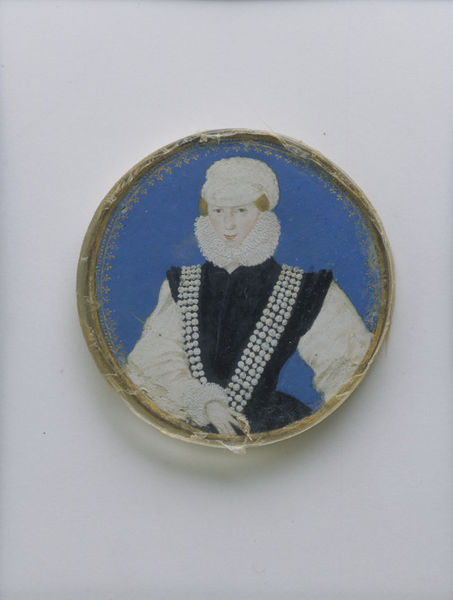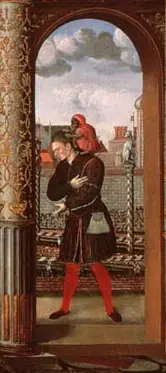What I loved about researching my book On This Day in Tudor History was the fact that I kept stumbling across people and events I knew very little about, and people and events I wanted to know more about. One of the people that piqued my interest was Mary Roper Clarke Bassett (or Basset), the 16th-century scholar and translator whose education was praised by the likes of Roger Ascham and Nicholas Harpsfield, and who presented Queen Mary I with a copy of five books of Eusebius's Ecclesiastical History which she had translated from Greek into English.
Mary was the daughter of William Roper and Margaret Roper (née More), and the granddaughter of Sir Thomas More, the famous scholar, humanist, author and statesman. Mary's birthdate is not known but her parents married in 1521 and her siblings were born between 1523 and 1544. Like her mother, Mary was given a fine classical education and her tutors included John Morwen of Corpus Christi College, Oxford. Her biographer in the Oxford Dictionary of National Biography, Caroline M. K. Bowden, writes of how the 16th-century historian Nicholas Harpsfield "described her as a person of rare learning and an expert in Greek and Latin."
Mary married twice: Stephen Clarke and James Bassett, son of Sir John Bassett of Umberleigh, Devon, and Honor Grenville. James Bassett's mother's second marriage made James the stepson of Arthur, Viscount Lisle, Deputy of Calais. James served as secretary to Stephen Gardiner, Bishop of Winchester, and was a member of Mary I's privy chamber and then King Philip's privy chamber. Nicholas Harpsfield wrote of how Bassett had been in exile in Flanders during Edward VI's reign "because he would the better preserve himself not to be entangled with the schism". Mary also served at court, serving as a gentlewoman of Mary I's privy chamber. James and Mary's marriage was cut short by James's death on 21st November 1558, but the couple had two children: Philip, named after the king, and Charles, who was born after his father's death. Like her mistress, the queen, Mary Bassett was a devout Catholic and the work she translated from Greek for Mary I, five books of Eusebius's Ecclesiastical History, was a book that Mary saw as something that all Christians should read.
Mary Bassett also translated History of the Passion which had originally been written in Latin by her grandfather, Sir Thomas More. Her translation was published by William Rastell, Sir Thomas More's nephew, in 1557, in a volume of works by More. Nicholas Harpsfield wrote of her being responsible for other translations: "This Mistress Bassett is very well exported in the Latin and Greek tongues; she hath very handsomely and learnedly translated out of the Greek into the English all the ecclesiastical story of Eusebius, with Socrates, Theodoretus, Sozomenus and Euagrius, albeit of modesty she suppresseth it, and keepeth it from the print."
Mary Bassett died in London on 20th March 1572. Caroline K. Bowden writes that her will was "a clear indication of the strength of her Catholic faith. She committed her soul to the blessed lady St Mary and any beneficiaries who were heretics were to be excluded."
Notes and Sources
- "BASSETT, James (c.1526-58), of Umberleigh, Devon and London" by Roger Virgoe, published in The History of Parliament: the House of Commons 1509-1558, ed. S.T. Bindoff, 1982, Boydell and Brewer, and online at http://www.historyofparliamentonline.org/volume/1509-1558/member/bassett-james-1526-58
- Bowden, Caroline M. K.. “Bassett [Roper], Mary (d. 1572).” Caroline M. K. Bowden In Oxford Dictionary of National Biography, edited by H. C. G. Matthew and Brian Harrison. Oxford: OUP, 2004, http://www.oxforddnb.com/view/article/45808
- ed. Reynolds, E.E. (1963) Lives of Saint Thomas More by William Roper and Nicholas Harpsfield, Everyman's Library, p. 100, read online at https://archive.org/details/livesofsaintthom000169mbp




Leave a Reply